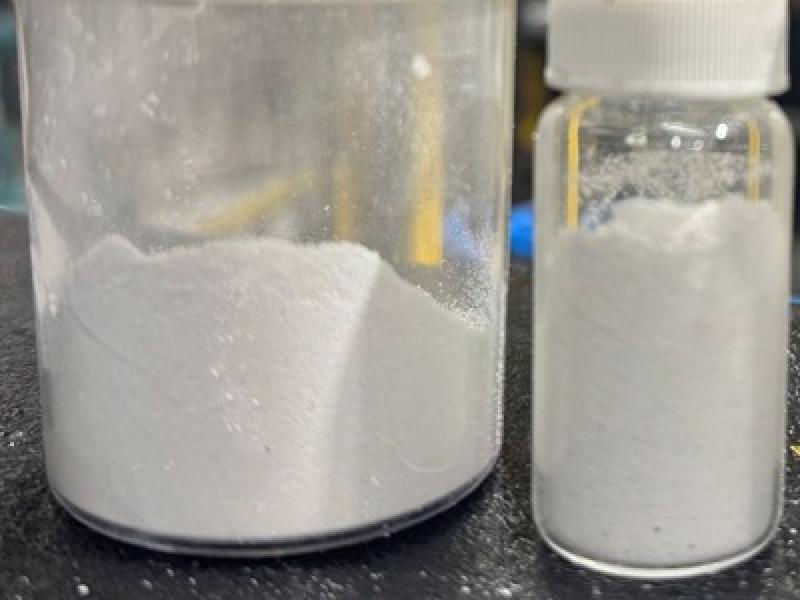
A fuel refinery by Eaglesledge Energy Ltd. planned for Belle Plaine, Sask. will be powered by a solar facility that could also support an on-site carbon capture system.
The first phase of the refinery and 125-megawatt solar farm expected to be situated on 1,100 acres will produce 30,000 barrels of ultra-low sulfur diesel, gasoline, and jet fuel per day, using sweet light crude oil from the Estevan area.
Eaglesledge is a Vancouver-based private energy developer that has been working on the project since 2017 and will be building the Belle Plaine project from the ground up, CEO Boris Weiss told Sustainable Biz Canada in an interview.
The solar farm would also provide most of the power for an energy-intensive carbon capture project that is aimed at reducing the facility's greenhouse gas emissions.
“The effect of the CCUS (carbon capture, utilization and sequestration) system is to match provincial-led federal targets as far as green, green, green. But the energy component is astronomical. We are investing to do our due diligence on the engineering side of this,” he said.
About the Belle Plaine project
Weiss said the refinery is in an “optimal” location because of its proximity to a Canadian Pacific Kansas City railway, utilities and a TC Energy distribution line. Belle Plaine is on Hwy. 1 of the Saskatchewan portion of the Trans-Canada Highway, sandwiched between Regina and Moose Jaw, resulting in a relatively short commute from some of Saskatchewan’s biggest population hubs.
Its location in southern Saskatchewan puts it in a strong area for solar energy, he added.
The solar energy will power the facility and local industrial demand with expectations to use photovoltaic technology from Canadian Solar. The potential for battery storage will be explored to run the facility during low sunlight or at night.
Ground-breaking for Phase 1 is scheduled for the late fall to winter of 2024. The assembly of the refinery and solar facility is expected to ramp up in the spring of 2025, with completion and operations beginning in Q1 2026.
Weiss would not disclose the anticipated size of the refinery, but said approximately 280 jobs will be created for the refinery, with 160 people on site and 120 on the administrative side.
There is potential for a second phase of the refinery that would expand the fuel production to 85,000 barrels per day and add 450 megawatts of solar energy capacity.
Eaglesledge values Phase 1 at $624.5 million, with Phase 2 injecting another $1.5 billion in valuation.
The possibility of carbon capture
Most of the power from the solar facility is expected to be directed toward its CCUS system. Weiss explained the fuel refinery will produce approximately 125,000 tonnes of carbon dioxide per year, using only about 10 megawatts worth of power while a carbon capture system would consume 80 megawatts to 90 megawatts.
Such technology can capture 90 per cent to 95 per cent of the carbon dioxide emissions from the refining process, Weiss explained.
“With the CCUS systems there is no specific mechanism to make this economical in any way without creating your own power,” he explained.
If Eaglesledge opts to pursue carbon capture, Weiss said it will likely use a full capture line from Whitecap Resources, an oil and gas firm headquartered in Calgary that captures and injects carbon dioxide underground at its projects in Saskatchewan and Alberta.
The company is working with engineers to evaluate the possibility of installing a CCUS system, with a target for 2028.
Ways to offset pollution
Weiss said such a refinery is necessary given the demand for diesel, gasoline and jet fuel for “optimizing and maintaining lifestyles.”
Battery technology is not advanced enough for industry and large commercial projects, he continued, meaning solar power and carbon capture may be the best path forward for now to play a part in reducing carbon emissions from fossil fuel consumption.
The CEO is confident Eaglesledge can avoid the fate of Capital Power Corp., which pulled the plug on plans for a $2.4-billion carbon capture and storage project near Edmonton due to financial strain.
“We’re confident in our CO2 capture approach and our eventual utilization system.”
He hopes the Belle Plaine project will be the “greenest refinery project on the planet” and serve as a model for future fuel refineries.










